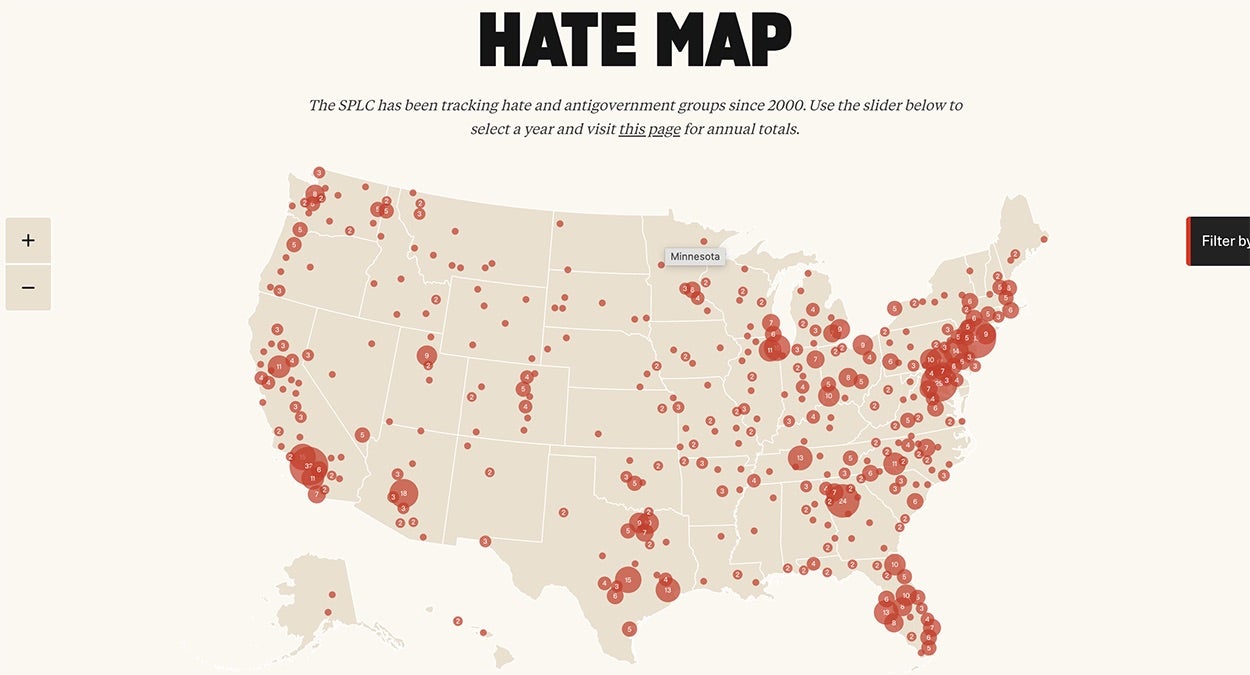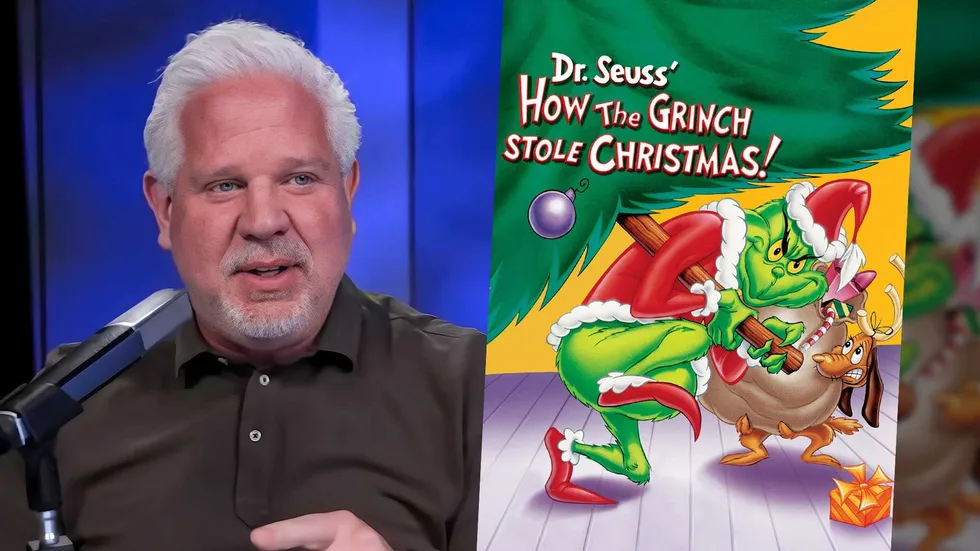Leftist Group Cited by FBI Ties Itself in Knots to Avoid Liability for Allegedly Defaming Conservatives

How can a leftist group present itself as the authority on “hate groups” in public, touting the fact that police and even the FBI have relied on its materials, and then reverse course when challenged in court, claiming that its statements are unprovable “opinion” rather than expert statements of fact?
Live Your Best Retirement
Fun • Funds • Fitness • Freedom
Has the Southern Poverty Law Center no shame? To ask the question is to answer it.
As I wrote in my book, “Making Hate Pay,” the SPLC has long engaged in ritual character assassination, putting mainstream conservative and Christian nonprofits on a “hate map” with chapters of the Ku Klux Klan, claiming that the map exposes the “infrastructure upholding white supremacy.” It persisted in doing this after the “hate map” inspired a terrorist attack in 2012 and after a former employee called the “hate” accusations a “highly profitable scam.”
The SPLC uses the “hate map” as a sword, eviscerating the reputations of its political and ideological opponents. When these targeted conservatives seek redress in court, the SPLC erects an extremely disingenuous shield, claiming that the “hate group” accusation is a mere matter of opinion, not liable for defamation because it doesn’t involve any specific “facts.”
A well-crafted lawsuit has cut right to the heart of this slimy argument, however, and the SPLC is desperately twisting itself in knots to avoid facing a jury trial on the merits.
The Lawsuit
The Dustin Inman Society, a Georgia nonprofit advocating the enforcement of immigration law, sued the SPLC for defamation in 2022. While the SPLC explicitly told the Associated Press that the organization was not a “hate group” in 2011, the center later branded it an “anti-immigrant hate group” in 2018 after registering a lobbyist to oppose a bill the group supported.
In April 2023, U.S. District Judge W. Keith Watkins in Alabama denied the SPLC’s motion to dismiss the lawsuit. Two years later, the SPLC filed its motion for summary judgment in May, asking Watkins to resolve the suit in the SPLC’s favor before it heads to trial. While society founder D.A. King died earlier this year, the lawsuit is ongoing because it involves King’s estate and his organization.
The defamation lawsuit zeroes in on two SPLC claims: that The Dustin Inman Society “poses as an organization concerned about immigration issues, yet focuses on vilifying all immigrants”; and that it is an “anti-immigrant hate group.”
SPLC’s Defense
The SPLC argues that neither statement can be defamatory because both are “subjective evaluations not subject to empirical verification” and “the First Amendment allows libel claims only based on provably false statements” (emphasis original).
The Dustin Inman Society’s legal brief demolishes these claims.
“Not once in its publications concerning DIS did SPLC qualify its statements as matters of opinion,” the brief notes. “To the contrary, SPLC spoke with authority, backing its factual statements with its ‘intelligence,’ ‘investigation,’ and ‘expert analysis.'”
The Dustin Inman Society cites the SPLC, which brags that it “monitors the activities of domestic hate groups” using “key intelligence,” “expert analysis,” and “investigative reports.” The SPLC states that it uses the reports to “train law enforcement officers.”
“Police officers are not trained on the basis of political opinions, and terms like ‘intelligence’ and ‘investigation’ are indicative of factual observations and conclusions,” the brief notes.
Most preposterously, the SPLC claims that branding The Dustin Inman Society an “anti-immigrant hate group” cannot possibly be defamatory because that term is “undefined.” Yet the SPLC itself defined the term “anti-immigrant hate group”—as “the most extreme of the hundreds of nativist and vigilante groups” that favor “mass deportations,” “white nationalism,” “racism,” and “draconian enforcement measures,” and that “usually argue that immigrants are unable to assimilate, have lower intellectual capacity than white people, bring diseases, or are inherently more criminal.”
“SPLC can hardly be heard to claim that these terms are hopelessly ‘ambiguous’ and ‘suffer from tremendous imprecision’ when SPLC has itself told its readers precisely what these terms are to mean,” the brief states.
The SPLC wants to have its cake and eat it, too. Do Americans really believe the SPLC thinks its “hate” labels are merely a matter of opinion when the group uses them to urge financial firms and tech companies to blacklist conservatives? Do Americans really believe the SPLC thinks its designations are not “factual” when it uses them to get the Justice Department to target Moms for Liberty?
Actual Malice
If a defamation plaintiff is a “public figure,” he or she must prove that the defendant published a statement with knowledge that the statement is false or with a “high degree of awareness” of its “probable falsity.”
The Dustin Inman Society claims to have unearthed “substantial evidence that SPLC knew the truth about DIS yet chose to publish a falsehood.”
“In addition, SPLC had a malign motivation: its decision to reverse course regarding DIS was motivated, not by the truth, but by its admitted desire to stamp out the ‘Tanton Network,'” the group’s legal brief claims. According to the SPLC, this network advocates the anti-immigrant policies of John Tanton, an environmentalist activist who opposed immigration and whom the SPLC calls a white nationalist.
“DIS has never, publicly or privately, embraced or adopted any of the rhetoric espoused by Tanton; it has never, publicly or privately, voiced support for his perspectives,” the brief states.
Watkins should reject SPLC’s slimy motion and let The Dustin Inman Society get its day in court. The public deserves to see just how shameless this leftist smear factory truly is.
The post Leftist Group Cited by FBI Ties Itself in Knots to Avoid Liability for Allegedly Defaming Conservatives appeared first on The Daily Signal.
Originally Published at Daily Wire, Daily Signal, or The Blaze
What's Your Reaction?
 Like
0
Like
0
 Dislike
0
Dislike
0
 Love
0
Love
0
 Funny
0
Funny
0
 Angry
0
Angry
0
 Sad
0
Sad
0
 Wow
0
Wow
0










































































